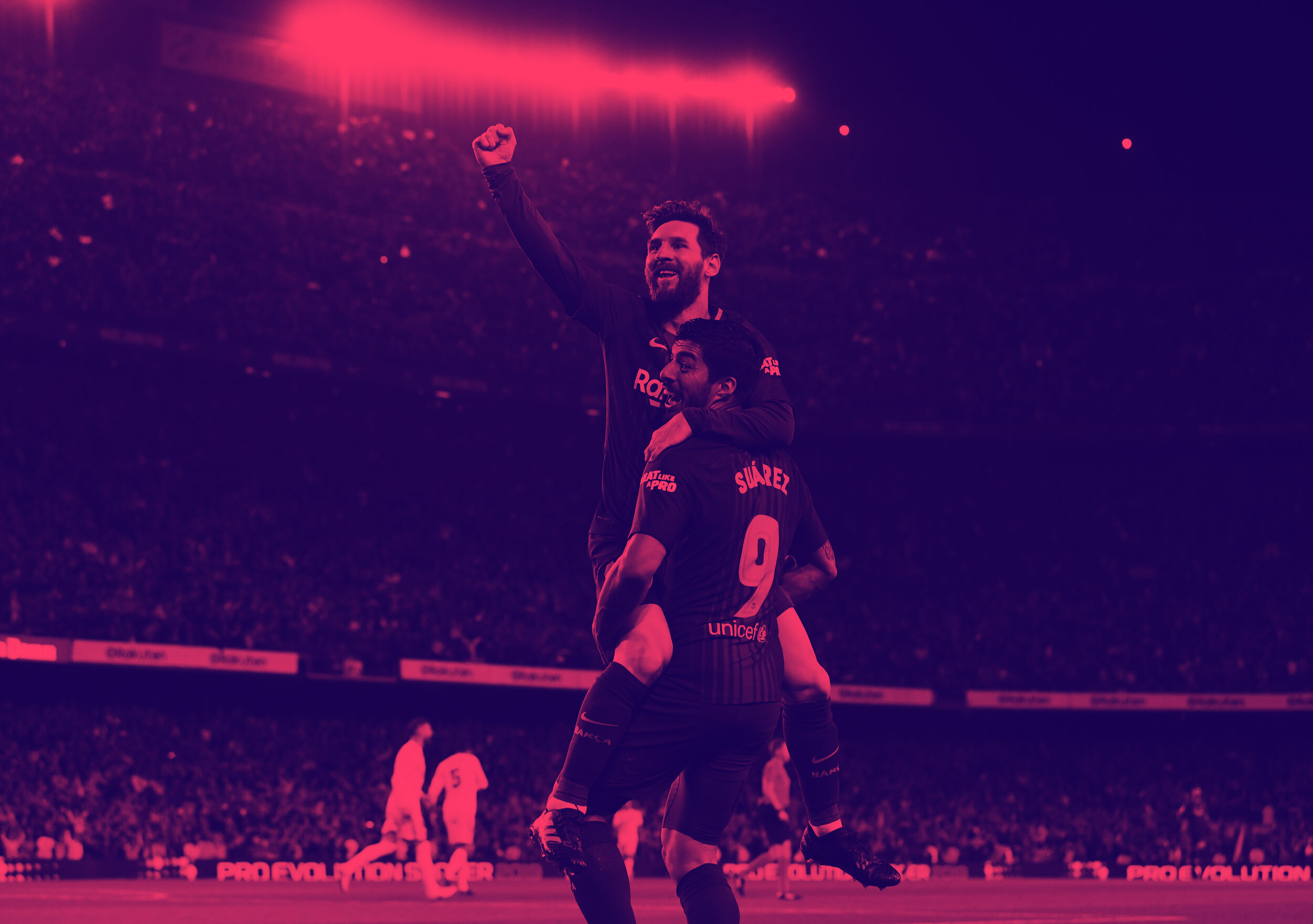The normalization of Messi's cruel, beautiful brilliance
When accepting his sixth Ballon d’Or, Lionel Messi hinted at the prospect of his retirement. Whilst being a day everyone knows will come, Ryan Hunn writes why Messi’s retirement will be so painful when it finally does.
Lionel Messi throws his hands up and demands the ball. He’s forty, maybe forty-five yards from goal - right of the centre circle – and receives it to feet. His body has turned to face the opposition goal, barely visible through the numerous lines of defence. He’s more compact now: his head and shoulders are closer to the ground than normal, his upper body leaning half a yard ahead of his feet, feet that are about to ignite beneath him and propel him with the ferocity of a NASA-grade rocket.
It’s at this precise point where time, as we know it, stops and splits humanity into two distinct groups: one filled with anticipation, the other gripped by utter fear, for both there is a sharp intake of breath.
How this ends, you already know; but how we get there, you don’t. It could take place on a rainy evening in Madrid during the final month of this decade. It could refer to the final day in May 2015, at Camp Nou, or indeed 18th April 2007 in the very same location. No-one would blame you for your mind flashing back to the Santiago Bernabéu on 27th April 2011, or countless other occasions for that matter.
For even the most special of players, an opening paragraph such as the one above would make it easy to recall the goal it describes. Moments of brilliance and beauty to this degree don’t happen too often and, when they do, they are burned into our memories forever. Maradona versus England in the Azteca, Weah against Verona at San Siro: goals that can be retold with complete precision until the day that time catches up with us. Goals that leave behind a small pool of fans for whom retelling it at all it just too painful.
With Messi, the victims of his brilliant, beautiful, yet brutal cruelty are scattered around the entire globe. Some are rich, some are poor. Some have the misfortune to still face him multiple times per season, some are lucky enough to have retired. Many still turn up to support their club, bringing with them a futile belief that he might not do it to them again; many go along just accepting that he will. Some are older and more experienced in this specific genre of heartbreak, the scar tissue from each case making the next one slightly easier. Many are still young and this feeling is new, overwhelmed with the thought that something so magical can hurt so much.
“Despite being so otherworldly, Messi is no alien, no superhero and no gift from the gods. What he is, however, is the archetypal antihero.”
When someone has snatched that many souls, it’s impossible to keep track; we are, after all, only human. When always present, such beauty stops being so noticeable, the same can be said for pain. Whether Messi has hurt you, or wowed you, or the strange situation where he’s done both, it’s now almost impossible to recall – with the accuracy it deserves – every otherworldly goal or performance he has produced.
But despite being so otherworldly, Messi is no alien, no superhero and no gift from the gods. What he is, however, is an archetypal antihero. Many men have faced him: taller, stronger, maybe better-looking or in much better shape, each of them reduced to quivering wrecks, begging for mercy. He’s the bullied kid who got his revenge, the normal dude doing abnormal things. He’s every one of us.
And yet, in a few years’ time, a season will begin and Messi won’t be there. The reason the mere acknowledgement of such a prospect hurts so much is not exclusively down to knowing we will no longer see that brutal beauty each week. Nor is it down to knowing there will be no more variations to the story that starts with him being forty, maybe fifty yards from goal. Sure, these things will be hard to take, but there will be other types of beauty from other types of players, bringing with them different kinds of pain and different kinds of joy.
What will compound that sense of loss is that we – all of us – will have lost our antihero. The guy who wasn’t supposed to be there, who was too small, too weak, not athletic enough and yet went on to be the best there ever was and probably the best there ever will be. Whether you are someone he hurt or someone he brought immense joy, it meant that – for over a decade – we were all GOATs too.
This article was originally posted on December 3rd 2019.



